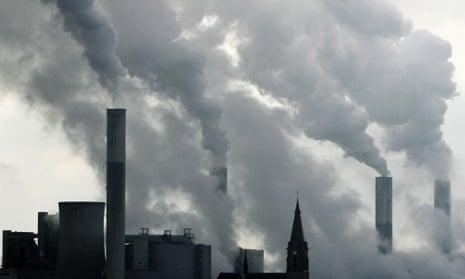The impacts of climate change will drive violent conflicts that require the deployment of British military forces around the world, according to one of the UK’s most senior military figures.
“Climate change will require more deployment of British military in conflict prevention, conflict resolution or responding to increased humanitarian requirements due to extreme weather impacts,” said Rear Admiral Neil Morisetti.
“It is posing a risk to geopolitical security, which is a prerequisite for economic growth, good health and wellbeing for all of us.”
Morisetti warned that without sharp cuts to greenhouse gas emissions, even military action would not be able to prevent global instability.
The world’s governments have pledged to cut carbon and limit warming to 2C to prevent dangerous climate change. But emissions are continuing to rise and current trends point to 4C of warming. “We could probably secure a 2C world,” he said. “I think it most unlikely we would be able secure a 4C world.”
Morisetti said global warming was a “threat multiplier” that is undermining peace and livelihoods, not just the natural world. “This is as much about blood and treasure as it is about environment.”
“The impact resulting in the loss of land and the loss of livelihoods is increasing the stresses in a number of vulnerable countries, countries where food, health and [rising population] are challenges,” he said. “All of that is increasing the threat of instability in an already unstable world. We need to act now to manage the risk.”
Morisetti, who served in the navy for 37 years and is also a former special envoy for climate change for the foreign secretary, said the increasing floods, droughts and food shortages driven by climate change would affect the UK, even if far away, by disrupting international trade and the import of goods.
“The globalised world we live in [means] we are affected in the UK by events many thousands of miles away,” he said. “There is no magic drawbridge we can draw up and the problem goes away.”
Morisetti was speaking at public briefing for MPs in Westminster on the risks of climate change, in the wake of a recent report from the Intergovernmental Panel on Climate Change.
The landmark report, compiled by thousands of scientific experts and signed off by 194 nations, said climate change is set to inflict “severe, widespread and irreversible impacts” on people and the natural world unless carbon emissions are cut sharply and rapidly.
Global warming will also double or treble the deaths from heatwaves in the UK, said Prof David Walker, the deputy chief medical officer for England. “The potential impacts on health are very significant,” he told the meeting, organised by the thinktank Energy and Climate Intelligence Unit.
In 2003 a heatwave killed 70,000 people in Europe, including 2,000 in the UK. “Looking ahead 30 to 40 years, that will be an average summer for us,” said Walker. He said the effect of warming on reducing excess winter deaths was modest by comparison.
Walker said insect-borne diseases were a concern as the UK warmed. “We are seeing a gradual moving north of insects for some quite serious diseases like dengue fever, chikungunya virus and malaria.” He said chikungunya had now been seen in Europe and the insects that carry it had been spotted as far north as Belgium.
Walker also said increased flooding would cause mental health problems, as flood victims were two to five times more likely to suffer such illnesses. But he added that acting on climate change would bring health benefits, such as cleaner air and more exercise for people choosing to walk or cycle instead of using cars.
Another climate change impact on the UK would be on food security, said Guy Smith, vice-president of the National Farmers Union, whose own Essex farm is partly below sea level and is the driest spot in Britain.
“If there one word to describe agriculture the last 10 years it is volatility, both in weather and markets and those two things are related.”
Guy Shrubshole, at Friends of the Earth, said: “When even the military are worried about global warming, it’s time for the rest of Whitehall to wake up.”
